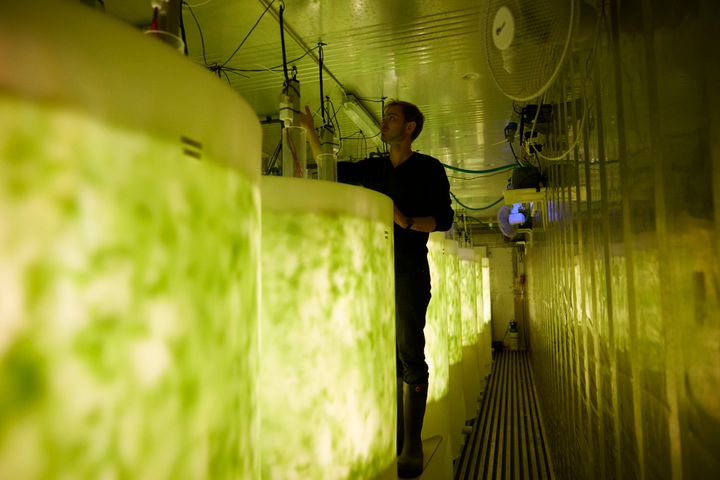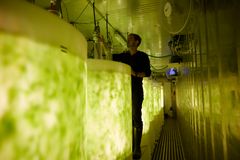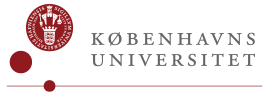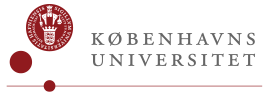Danish innovation to convert nutrients and CO2 from shrimp and fish farming into seaweed

Together with Aarhus University and a range of companies, researchers from the University of Copenhagen will develop the sustainable co-production of fish, shrimp and seaweed.
Over the next four years, they will work to further develop a closed, sustainable cycle on land that utilizes residual nutrients and CO2 from shrimp and fish farming to grow high-value seaweed for the food and healthcare industries. The project is called SeaFree.
"The project aims to use seaweed production to absorb and convert emissions from land-based aquaculture into a high-value product. Among other things, the seaweed will be used for dietary supplements that can prevent diabetes and sustainable foodstuffs innovations. In addition to capturing emissions that would have otherwise been emitted into the atmosphere and aquatic environment, the seaweed produced is both healthy and rich in umami flavour," says Professor Marianne Thomsen from the Department of Food Science at the University of Copenhagen.
A single 40-foot container makes seaweed in a week
The project, funded by Innovation Fund Denmark with DKK 14.4 million (€1.9m), is being carried out in a collaboration among the companies Pure Algae, DryingMate, Food Diagnostics, Sigrid Therapeutics, XOventure GmbH/Rigi Care, KOST, SOF Odden Caviar and HanseGarnelen.
The project’s starting point is a 40ft container setup equipped with eight one-thousand-liter tanks. The container solution is a so-called Plug’n’Play technology with great export potential. By combining salt water, CO2 and nutrients with LED lights, the unit can produce a full batch of seaweed in just one week, resulting in an extremely short harvest period.
"SeaFree represents the latest in recycling technology for land-based shrimp and fish farming. Besides capturing emissions, the system also recirculates surplus heat from the plants to the Plug'n'Play technology. The project includes the development of a new technology that makes it possible to use surplus heat to dry the seaweed which is then sold to the healthcare industry. In this way, SeaFree contributes to a more sustainable and efficient production process," says Marianne Thomsen.
A potential export venture
The final product consists of climate-friendly fish, shrimp and sea lettuce – a healthy, fiber and protein-rich seaweed species. In addition to the production of various dietary supplements, sea lettuce is also used as an edible accompaniment when people buy seafood.
"Part of the project is also about developing recipes that increase awareness of seaweed as an ingredient for delicious home-cooked meals," says Professor Marianne Thomsen.
According to Thomsen, there is huge potential in farming fish and seaweed in the manner envisioned by SeaFree. If all of the world's land-based shrimp and fish farms implemented the method, it could significantly reduce the CO2 footprint of global food systems.
As such, the combination of aquaculture and seaweed cultivation in closed systems may well develop into a new Danish export market.
"On a global level, it will be possible to implement the technology, marketed as "SeaFree Synergy Solutions", anywhere in the world. As for the technology’s environmental benefits, they are unequivocal. "We are already in contact with South Korea, which is very interested in the technology and the project’s development," she concludes.
Contacts
Marianne Thomsen
Professor
Department of Food Science
University of Copenhagen
Mobile: + 45 22 29 26 27
mth@food.ku.dk
Michael Skov Jensen
Journalist and team coordinator
The Faculty of Science
University of Copenhagen
Mobile: +45 93 56 58 97
msj@science.ku.dk
Images

About Københavns Universitet - Det Natur- og Biovidenskabelige Fakultet
 Københavns Universitet - Det Natur- og Biovidenskabelige Fakultet
Københavns Universitet - Det Natur- og Biovidenskabelige FakultetBülowsvej 17
1870 Frederiksberg C
35 33 28 28https://science.ku.dk/
Det Natur- og Biovidenskabelige Fakultet på Københavns Universitet – SCIENCE – er landets største naturvidenskabelige forsknings- og uddannelsesinstitution.
Fakultetets væsentligste opgave er at bidrage til løsning af de store udfordringer, som vi står overfor i en verden under hastig forandring med øget pres på bl.a. naturressourcer og markante klimaforandringer - både nationalt og globalt.
Subscribe to releases from Københavns Universitet - Det Natur- og Biovidenskabelige Fakultet
Subscribe to all the latest releases from Københavns Universitet - Det Natur- og Biovidenskabelige Fakultet by registering your e-mail address below. You can unsubscribe at any time.
Latest releases from Københavns Universitet - Det Natur- og Biovidenskabelige Fakultet
Old aerial photos give scientists a new tool to predict sea level rise3.7.2025 08:00:00 CEST | Press release
Researchers from the University of Copenhagen have gained unique insight into the mechanisms behind the collapse of Antarctic ice shelves, which are crucial for sea level rise in the Northern Hemisphere. The discovery of old aerial photos has provided an unparalleled dataset that can improve predictions of sea level rise and how we should prioritise coastal protection and other forms of climate adaptation.
Gamle luftfotos giver forskere nyt redskab til at forudsige havstigninger3.7.2025 08:00:00 CEST | Pressemeddelelse
Forskere fra Københavns Universitet har fået unik adgang til at forstå mekanismerne bag antarktiske ishylders kollaps, som er afgørende for havstigninger på den nordlige halvkugle. Et fund af gamle luftfotos har skabt et enestående datasæt, som kan forbedre vores forudsigelser af hvor meget havene stiger, og vores prioritering af kystsikring og andre klimatilpasninger.
Ny institutleder på IFRO: ”Faglighed og fællesskab går hånd i hånd”1.7.2025 10:49:17 CEST | Pressemeddelelse
Per Svejstrup er fra 1. august ansat som institutleder på Institut for Fødevare- og Ressourceøkonomi (IFRO). Den kommende leder træder ind i rollen med stor respekt for IFRO's faglige og kollegiale kultur med klare ambitioner for fremtiden.
Dangerous Variant of Salmonella Still Not Eradicated – Researchers Point to the Solutions1.7.2025 09:53:23 CEST | Press release
The infectious and multi-resistant cattle disease Salmonella Dublin can be fatal to both humans and animals and causes significant losses for farmers. Although Denmark has attempted to eradicate the disease since 2008, it has not yet succeeded. A study from the University of Copenhagen points to possible reasons – and the necessary solutions.
Farlig type salmonella er stadig ikke nedkæmpet i Danmark – forskere peger på løsningerne30.6.2025 09:54:03 CEST | Pressemeddelelse
Den smitsomme og multiresistente kvægsygdom Salmonella Dublin kan være dødelig for både mennesker og dyr og medfører desuden betydelige tab for landmændene. Selvom Danmark har forsøgt at udrydde sygdommen siden 2008, er det ikke lykkedes. Et studie fra Københavns Universitet peger på den mulige årsag og de nødvendige løsninger.
In our pressroom you can read all our latest releases, find our press contacts, images, documents and other relevant information about us.
Visit our pressroom